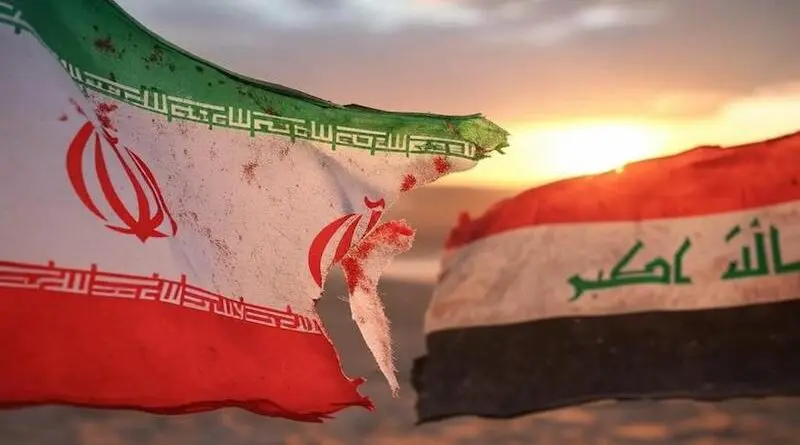For many years, Iran exercised powerful influence over Iraq Is Weakening politics, economy, and security forces. Tehran’s long-standing strategy of building an “axis of resistance” across the Middle East, including strong footholds in Iraq, Lebanon, Syria, and Yemen, helped it counter the influence of the United States and its allies.
However, this strategy is now facing major setbacks. Iran’s position in Iraq—the crown jewel of its regional efforts—is starting to weaken significantly. Recent political moves inside Iraq, combined with broader changes in the Middle East, signal that Tehran’s dominance may be slipping away faster than many expected.
Iran’s Long Reach Through Iraq
After the 2003 U.S. invasion of Iraq, Iran capitalized on the chaos to insert itself into Iraq’s internal affairs. It built deep ties with Shia political parties, funded powerful militias, and even influenced Iraq’s government decisions behind the scenes.
Iranian generals, particularly from the elite Quds Force, often acted as key power brokers in Baghdad. Tehran’s support for militias like Kataib Hezbollah allowed Iran to apply pressure on Iraqi leaders whenever needed. Over time, Iran created a system that allowed it to pull levers of power without openly occupying the country.
But that system is now starting to break.
Signs of Change Inside Iraq
Prime Minister Mohammed Shia al-Sudani came to power backed by Iran-aligned political factions. Yet, he has recently taken a series of actions that show Iraq is trying to distance itself from Tehran’s grip. These actions include improving cooperation with the United States and making decisions that favor Iraqi sovereignty over foreign influence.
In early 2025, Sudani’s government dropped an arrest warrant against former U.S. President Donald Trump, related to the assassination of Iranian general Qassem Soleimani in Baghdad back in 2020. This move angered Iranian-aligned groups but was a clear signal that Iraq wanted to ease tensions with Washington.

Additionally, the Iraqi government facilitated the release of Elizabeth Tsurkov, a kidnapped researcher believed to be held by Iranian-backed forces. Iraq also passed new budget measures that favored Kurdish regions—an area of Iraq traditionally closer to U.S. and Western interests than to Iran.
These steps, while cautious, suggest a growing independence from Tehran’s demands and a willingness to re-balance Iraq’s foreign relations.
Iran’s Shrinking Influence Among Militias
For years, Iran-aligned militias in Iraq operated almost like shadow armies, often more powerful than the Iraqi military itself. They attacked U.S. bases, intimidated political rivals, and controlled major parts of Iraq’s economy.
Yet recently, these militias have gone quiet. After a year of rocket attacks and assaults on U.S. interests in 2024, Iranian-backed militias largely halted their activities by the end of the year. Fear of U.S. retaliation and dwindling popular support within Iraq have made it harder for these groups to operate with impunity.
Moreover, the Iraqi public has grown increasingly frustrated with the corruption, violence, and lawlessness associated with these militias. Many Iraqis see them as serving Iranian, not Iraqi, interests.
If these militias lose their ability to act freely, Iran will lose one of its strongest tools for controlling Iraq’s political landscape.
Why Iraq Is So Vital to Iran
Iran’s interest in Iraq is not just about politics—it’s also about money. Iraq’s economy, particularly its oil wealth, has been a major financial lifeline for Iran, especially under U.S. sanctions.
Iranian organizations have profited by:
- Smuggling Iranian oil disguised as Iraqi exports.
- Diverting fuel and oil revenues through corrupt networks.
- Exploiting Iraqi state contracts and subsidies through front companies.
Tehran has used the wealth from Iraq to fund its regional operations, including Hezbollah in Lebanon, the Assad regime in Syria, and Houthi rebels in Yemen.
If Iran loses its economic access to Iraq, its ability to finance its network of proxies across the region will suffer a major blow.
Challenges for the United States and Its Allies
The potential retreat of Iranian influence from Iraq presents a major opportunity for the United States and its partners—but also major risks.
The U.S. must move carefully. Heavy-handed military actions could reignite anti-American sentiment and drive Iraqis back toward Iran. Instead, experts suggest a strategy focused on diplomacy, economic support, and targeted sanctions against Iranian proxies.
Helping Iraq strengthen its own government institutions, fight corruption, and rebuild its economy will be crucial to making sure Iran does not regain its foothold.
At the same time, Washington must work with regional allies like Saudi Arabia, Jordan, and the Gulf states to offer Iraq attractive alternatives to Iranian dependency.
The Bigger Picture: Iran’s Regional Troubles
Iraq is not the only place where Iran’s influence is faltering. Across the Middle East, Iran’s once-strong axis of resistance is under pressure:
- In Lebanon, Israeli operations have weakened Hezbollah’s ability to act freely.
- In Syria, Turkish-backed Sunni groups have challenged Iranian-aligned militias.
- In Yemen, Iran’s support for the Houthis is becoming more defensive rather than expansionist.
Together, these setbacks point to a broader decline in Iran’s ability to project power beyond its own borders.
Conclusion: A Pivotal Moment for Iraq—and the Middle East
Iraq now stands at a crossroads. It can continue moving away from Iranian dominance and chart a new course based on sovereignty, prosperity, and stability. Or it can fall back into old patterns of foreign manipulation and internal conflict.
For Iran, the stakes are enormous. Losing Iraq would not just mean losing influence over a neighbor—it would mark a serious decline in Tehran’s dream of regional leadership.
The next year will be critical. Leaders in Baghdad, Tehran, and Washington will all have to make careful choices that could reshape the Middle East for decades to come.



